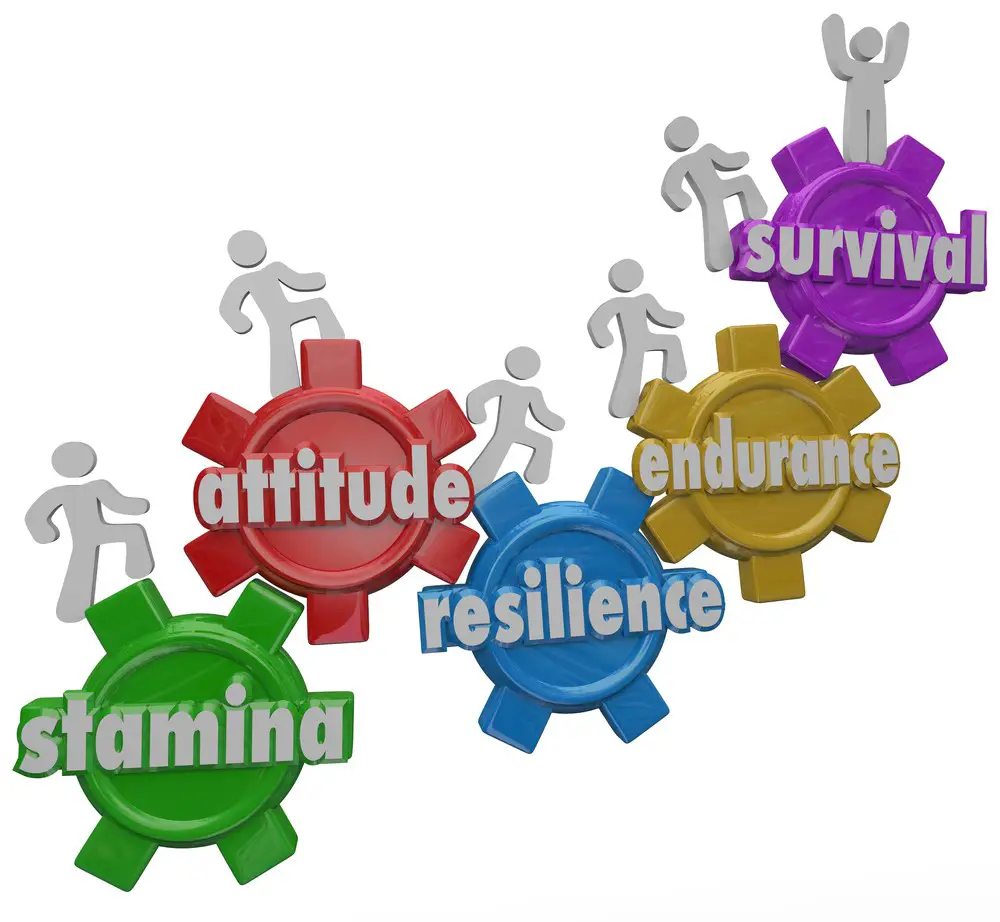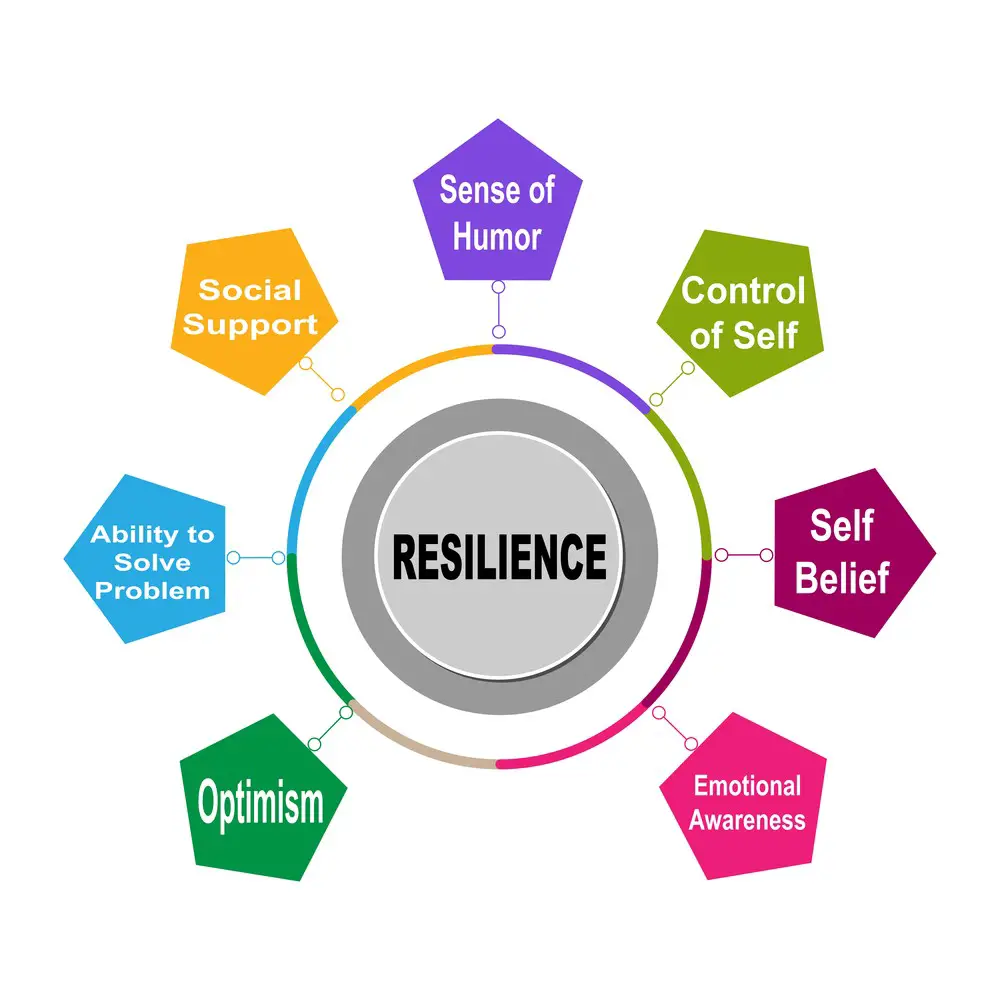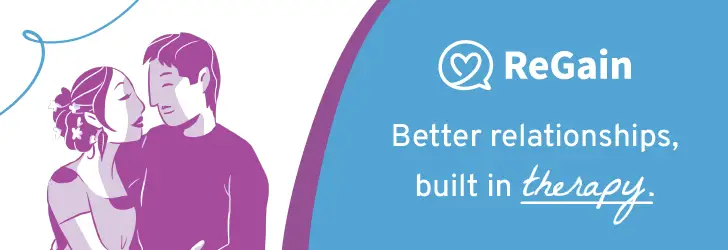In this article, we explore eight different techniques for approaching relationship conflicts, as shared by professionals, including a Master Relationship Coach and a Family Law Consultant. From adopting a team mentality to engaging in active listening, these experts provide valuable insights into promoting constructive resolutions.
- Adopt a Team Mentality
- Implement the Pause Technique
- Use the Judgments and Fears Technique
- Ensure Basic Needs
- Practice Mindful Listening
- Reflect the Other’s Perspective
- Separate Emotions from Arguments
- Engage in Active Listening
 1. Adopt a Team Mentality
1. Adopt a Team Mentality
The best technique for constructive resolution is a team mentality. Think not of the conflict as “me versus you,” but as “us versus the problem.” Let the goal be to find the answer instead of having the goal of winning the argument. Doing that makes you more likely to work together to find a solution.
You are also more likely to see conflicts as bonding experiences instead of as fights that tear you apart. Isn’t that what we want out of our relationships? To be closer at the end of the day than we were before?
Brandy Davis, Master Relationship Coach, LIfeing
2. Implement the Pause Technique
I encourage couples to agree to hit “pause” as soon as they can when conflict builds. This protects the relationship from further damage. Say something like, “I want to hit ‘pause’ because we agreed we don’t want to hurt each other, and I need some time and space to sort out what’s happening with me.”
Each person can examine their feelings during the pause as specifically as possible. Then, when ready, come back together and say, “I was feeling _______________, and I know that wasn’t your goal.”
This approach helps keep any defensiveness from rearing its ugly head and can allow the couple to focus on soothing the vulnerable spot that’s been revealed.
Greg Griffin, Pastoral Counselor, Relationship Repair and Rescue Specialist, Life Transformed Christian Counseling
3. Use the Judgments and Fears Technique
Relationship conflicts can be difficult. We want to be seen and valued, but sometimes, we have a hard time being vulnerable with each other. To help overcome this, one technique that can help promote constructive resolutions is called the “Name the Judgments and Fears Technique.”
You and your partner ask yourselves, “What are some opinions, assumptions, or judgments I am bringing to this conflict?” Write them out. Then, ask yourselves, “What are my fears related to the conflict?” Write those out, too.
Then, take some moments to share out loud what you wrote. No interruptions; pure sharing. If done genuinely, you can ask yourselves, “How may we be triggering each other’s fears while feeding into our judgments about the other?”
Here, the vulnerability of answering this question truthfully can transform a space and the conflict. Most importantly, though, the technique can help bring people back to their humanity and reconnect them to each other’s hearts.
Bryant Galindo, Founder, Mediator and Executive Coach, CollabsHQ
4. Ensure Basic Needs
First, when approaching conflict, be sure your basic needs are met. Be sure you are not hungry or sleepy—either can exacerbate conflicts unnecessarily. Second, earnestly listening to the other person is critical. To listen best, I have to quiet my brain space and shut off all assumptions.
If I can keep my brain from assuming what the other person will say or how the other person feels, I will fully listen to the other person’s feelings and understand the conflict from their perspective, which will certainly be different from mine.
One technique I use is to take notes of what the other person is saying and allow yourself the time and space to reflect on the issue the other person presents. Then, once you fully process how the other person experienced the conflict and what your part may have been, revisit the discussion with your partner—but not when you are hungry or tired.
Shanna Pothier, Family Law Consultant, Family Law Solutions, Inc.
5. Practice Mindful Listening
One technique I’ve found incredibly effective, both personally and in my role as a life coach, is the practice of “mindful listening.” It’s not just about hearing words, but truly being present and absorbing the emotions and intentions behind them.
Before jumping to conclusions or reacting impulsively, I take a deep breath, set my judgments aside, and truly listen. This simple act can transform a potential argument into a productive conversation. We build a bridge of understanding by giving space for others’ feelings and acknowledging them.
This approach promotes resolution and deepens the bond, making navigating future conflicts easier. So, next time a conflict arises, remember that the most powerful thing you can say is nothing at all. Just listen.
Bayu Prihandito, Psychology Expert, Life Coach, Founder, Life Architekture
6. Reflect the Other’s Perspective
When it comes to relationships, a common problem is when both parties feel like the other doesn’t listen to them. I combat this by using reflection, which is the art of rephrasing the other person’s perspective back to them to demonstrate your understanding and seek clarification as necessary.
For example, imagine a doctor talking to a patient. The doctor prescribed medication, but the patient hasn’t taken it. When the patient complains that they’re having trouble remembering, it’s easy to imagine the doctor scoffing and telling them to “just remember.” However, this would increase the conflict between the two.
Instead, if the doctor agrees, saying that taking pills without something to jog the memory is challenging, that decreases the tension. It also sets the doctor up as an ally, which might encourage the patient to listen to the doctor’s suggestion to set an alarm on their phone to help them remember.
Beverly Gearreald, Owner, Live Fearless Mentoring
7. Separate Emotions from Arguments
I believe the best way to approach relationship conflicts is to divorce your emotions from them. Once you take a step back and consider the argument presented, you can present your side effectively without the argument dissolving into personal attacks.
Separating your emotions also allows you to see the other person’s points and address each one. You can tell them they have valid points and even agree on some elements. That goes a long way to resolving any conflict.
Amruth Laxman, Founding Partner, 4Voice
8. Engage in Active Listening
It’s important to remain calm and objective when approaching relationship conflicts, which can be difficult as tensions are high. Try to understand the other person’s perspective and listen actively to their concerns. Avoid blaming or attacking the other person, as this can escalate the conflict and make it more difficult to find a resolution.
One technique that promotes constructive resolutions is active listening. Active listening involves fully focusing on the other person’s perspective and seeking to understand their point of view. This can involve asking questions to clarify their concerns and reflecting back on what you’ve heard to ensure that you understand their perspective. It’s difficult in tough situations, but it will be more productive.
Steven Wright, Co-Founder and Chief Editor, Lifestyle to the MAX

The Battlefield of Love
Relationship conflicts can feel like navigating a maze in the dark. Fortunately, we’ve got a flashlight: expert insights from a Master Relationship Coach and a Family Law Consultant. Here are eight transformative techniques to guide you through the labyrinth.
1. Team Up or Fall Apart
Expert Takeaway:
Viewing your relationship as a team effort encourages collective responsibility. It helps create an “us vs. the problem” mentality rather than a “me vs. you.”
Our Tips:
- Use “we” statements to foster a sense of unity.
- Celebrate victories together, however small.
2. The Power of Pause
Expert Takeaway:
Implementing the Pause Technique gives you both a moment to collect thoughts and emotions, avoiding reactionary decisions.
Our Tips:
- Step away for a moment if needed.
- Deep breathing exercises can aid focus.
3. Judging Less, Loving More
Expert Takeaway:
The Judgments and Fears Technique aims to deconstruct preconceived notions and internal fears that often muddy rational discussions.
Our Tips:
- Acknowledge your own biases.
- Ask open-ended questions to uncover hidden fears.
4. The Bedrock of Needs
Expert Takeaway:
Ensuring basic emotional and physical needs are met allows for a smoother conflict resolution process.
Our Tips:
- Keep a checklist of each other’s basic needs.
- Never use basic needs as negotiation chips.
5. The Art of Mindful Listening
Expert Takeaway:
Mindful listening requires being fully present, fostering a deeper emotional connection and mutual respect.
Our Tips:
- Put away distractions.
- Repeat back what you’ve heard for clarity.
6. Mirror, Mirror on the Wall
Expert Takeaway:
Reflecting on the other person’s perspective can break down walls of misunderstanding, laying a foundation for empathetic conversation.
Our Tips:
- Try the “I hear you saying…” technique.
- Temporarily adopt their viewpoint, even if you disagree.
7. Emotional Alchemy
Expert Takeaway:
Separate emotions from arguments to ensure you’re addressing the issue, not attacking the person.
Our Tips:
- Use “I feel” statements to express emotions.
- Take a timeout if emotions run high.
8. Listen Like You Mean It
Expert Takeaway:
Active listening means fully engaging, asking questions, and giving feedback, showing that you care about the other’s viewpoint.
Our Tips:
- Maintain eye contact.
- Nod and give verbal cues to show you’re engaged.
Harmony is a Skill, Not a Gift
Learning to resolve conflicts effectively is like mastering an instrument; it takes practice. Adopt these techniques; you may find harmony attainable, one note at a time.
 Therapy: When It’s Time to Call in the Pros
Therapy: When It’s Time to Call in the Pros
Sometimes, despite your best efforts, conflicts remain unresolved. That’s where professional help like therapy comes in. So how do you know when it’s time?
Signs Therapy May Be Needed
- Persistent, unresolved conflicts that create emotional distance
- A breakdown in communication, where even small talks turn into big fights
- Trust issues, including past or present infidelity
- Emotional or physical abuse
The Solo vs. Duo Debate: When to Go Alone and When to Go Together
Going Solo
- If you recognize personal issues that you’re bringing into the relationship
- When you need a confidential space to discuss relationship doubts
Going as a Couple
- When both parties recognize there’s a problem
- If the issues involve both parties (communication, intimacy, trust)
Our Tips:
- Have an open conversation about seeking therapy individually or as a couple.
- Support each other’s journey in therapy, even if you’re going separately.
The Support System: How to Help Each Other
- Be open to hearing about your partner’s therapy insights if they want to share.
- Engage in “homework” assignments from therapy, such as date nights or communication exercises.
- Celebrate small victories and improvements, such as a successfully resolved conflict.
Setting Goals and Recognizing Progress
Setting Goals
- Identify what you want to achieve, like improved communication or rebuilding trust.
- Break down larger goals into manageable steps.
Recognizing Progress
- Celebrate when you successfully implement a new communication strategy.
- Acknowledge personal growth, like becoming a better listener or managing anger better.
Our Tips:
- Keep a “progress journal” to track your relationship milestones.
- Openly discuss setbacks as opportunities for further growth.
The Road to Healing is Paved with Teamwork
Therapy isn’t a magic fix, but with the right attitude and consistent effort, it can be the guidebook you’ve been missing. Together or individually, therapy can offer invaluable tools for self-improvement and relationship enhancement.
So, whether you’re cracking open that guidebook or setting off without one, remember: the road ahead is best navigated together.

? The Life and Times of Jacob Maslow: A Journey of Resilience ?
Hey there! I’m Jacob Maslow, and let me tell you—life has tossed me some curveballs. But you know what they say, “What doesn’t kill you makes you stronger,” and I’m living proof of that. ?
? From Skyscrapers to Playpens: My Professional Odyssey ?
You may know me as a survivor of 9-11. I worked on the 101st floor and lost over a thousand colleagues on that fateful day. But I didn’t just survive—I changed lanes and embraced a work-from-home lifestyle, stepping into the role of primary caretaker for our kids while my ex hustled during odd hours.???
??? The Dual-Home Dance: Co-Parenting Chronicles ?
Post-separation, we maintained a pretty rad co-parenting arrangement with our kiddos in two households. It was like we had discovered the secret sauce of co-parenting… until the recipe changed. My ex cut me off completely from our kids in the past year. I’m in a three-bedroom apartment with two hauntingly empty rooms that I stare at daily. ?
? BetterHelp: My Virtual Lifesaver ?
I can’t overstate how much BetterHelp has been a game-changer for me. Not just because I recommend them as an affiliate but because they’re helping me navigate through this emotional labyrinth. ?️
? Final Thoughts: The Resilience Roadmap ?
You can bet your bottom dollar that life is unpredictable. Yet, here I am, sharing my story and hoping it may shine a light for someone else out there. If you’re struggling, I wholeheartedly recommend BetterHelp. It’s not just therapy; it’s a lifeline. ?
So stick around, and let’s figure out life together, shall we? ?

- The Burnout Epidemic: Why We’re All Feeling Overwhelmed and How to Cope - February 9, 2024
- How to Live a Peaceful Life - February 9, 2024
- Useful Information You Should Know About Health Screenings - February 8, 2024
This site contains affiliate links to products. We will receive a commission for purchases made through these links.


 1. Adopt a Team Mentality
1. Adopt a Team Mentality Therapy: When It’s Time to Call in the Pros
Therapy: When It’s Time to Call in the Pros


